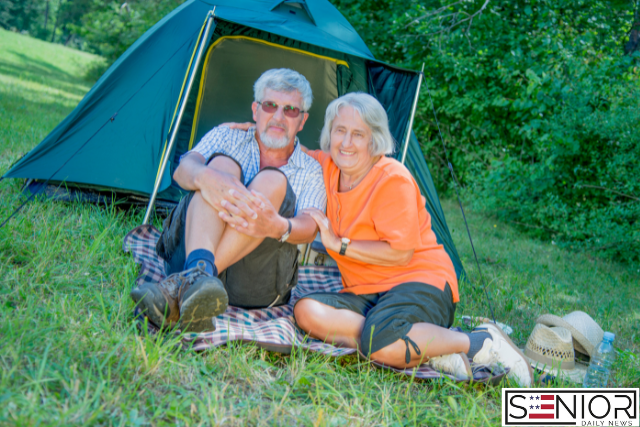Camping Tips for First-Time Senior Campers

Camping is often seen as an adventure for the young and daring, but more and more seniors are embracing the great outdoors — and for good reason. Spending time in nature is good for the body, mind, and soul. Whether it’s relaxing under starry skies, enjoying peaceful walks, or simply escaping the hustle and bustle of daily life, camping offers countless benefits for people of all ages.
However, camping as a senior, especially if you’re new to it, does require thoughtful planning and preparation. From choosing the right campsite to ensuring comfort and safety, a little foresight can make your first camping experience as enjoyable as possible.
This guide will cover everything you need to know before heading out, along with helpful camping tips for first-time senior campers so you can make the most of your adventure with confidence and ease.
Why Seniors Should Go Camping
Before diving into the practical tips, let’s take a moment to talk about why camping is a great idea for seniors:
????♂️ Promotes Relaxation
Camping allows you to unplug from everyday stress. The quiet of nature is known to lower stress levels and help with relaxation.
????♀️ Encourages Physical Activity
Light activities such as walking, setting up camp, or preparing meals outdoors help keep seniors active, which is essential for healthy aging.
???? Provides Fresh Air and Sunshine
Spending time outside boosts Vitamin D levels and improves respiratory health.
???? Fosters Social Connection
Camping is often done with family or friends, which helps prevent feelings of loneliness and isolation.
Planning Your First Camping Trip as a Senior
1️⃣ Choose the Right Campsite
Not all campsites are created equal. As a senior camper, you should:
- Look for senior-friendly or accessible campgrounds.
- Choose sites with nearby restrooms and running water.
- Opt for campgrounds with paved or flat paths to avoid uneven terrain.
- Reserve your campsite ahead of time to ensure availability and convenience.
Tip: National and state parks often offer discounts for seniors and have campsites designed for easy access.
2️⃣ Consider the Type of Camping
You don’t have to “rough it” in the wilderness if you don’t want to. Seniors can choose from various styles of camping:
- Tent Camping (traditional but may require more setup and mobility)
- Car Camping (sleeping in or near your vehicle for easy access)
- RV Camping (offers many amenities like a bathroom, kitchen, and comfy beds)
- Cabin Camping (perfect for those who prefer four walls and a roof)
Each type has pros and cons. Consider your health, mobility, and personal comfort when making a decision.
3️⃣ Pack Smart and Light
When packing for your trip, focus on essentials that add comfort and safety.
Must-have items for senior campers:
- Comfortable sleeping gear (e.g., air mattress, camping cot)
- Medications and a first-aid kit
- Weather-appropriate clothing (layering is key)
- Sun protection (hat, sunscreen)
- Insect repellent
- Easy-to-prepare meals and snacks
- Camp chairs with back support
- Flashlights or headlamps
- Cell phone and/or emergency communication devices
Avoid overpacking to make transportation and campsite setup easier.
4️⃣ Stay Comfortable While Sleeping
A restful night’s sleep can make or break your camping trip. For seniors, comfort is especially important.
Comfort tips for sleeping outdoors:
- Choose a sleeping surface that supports your back and joints.
- Use warm and breathable sleeping bags.
- Bring pillows for neck support.
- Wear comfortable, moisture-wicking pajamas.
If tent camping seems daunting, consider renting or investing in a small camper van or RV for added comfort.
5️⃣ Prioritize Safety
When you’re out in nature, safety always comes first, especially for older adults.
Camping safety tips for seniors:
- Inform someone of your trip details and expected return.
- Check weather forecasts and avoid camping during severe weather.
- Keep a charged phone and/or two-way radio for emergencies.
- Stay hydrated and avoid overexertion.
- Watch for uneven ground and always use a flashlight at night.
- Store food securely to avoid attracting wildlife.
6️⃣ Enjoy Senior-Friendly Activities
Camping doesn’t mean you have to hike up mountains or rough it in the wild. Choose activities that suit your pace and preferences:
- Nature walks on easy trails
- Bird watching
- Reading by the campfire
- Stargazing
- Fishing (where permitted)
- Photography
Camping should be about enjoyment, not exhaustion!
7️⃣ Stay Social and Connected
If possible, camp with family or friends. Having company makes the experience more enjoyable and offers an extra layer of safety.
For solo senior campers:
- Choose campgrounds with other campers nearby.
- Participate in ranger-led activities or group events.
- Keep in touch via phone or camping apps.
FAQs About Camping for Seniors
Q1: Is camping safe for seniors with mobility issues?
A: Yes, if planned properly. Opt for accessible campsites, use supportive gear, and avoid rough terrain. Cabin or RV camping may be better options for those with mobility concerns.
Q2: Can I camp alone as a senior?
A: Absolutely — many seniors enjoy solo camping. However, it’s best to inform family or friends of your plans, stay in populated campgrounds, and have emergency contacts handy.
Q3: What’s the best time of year for senior camping?
A: Spring and fall offer mild weather, fewer bugs, and quieter campgrounds. Avoid extreme temperatures in summer or winter.
Q4: How can I make tent camping more comfortable?
A: Use air mattresses, sleeping pads, and ergonomic camp chairs. Bring extra blankets and pillows for added comfort.
Q5: Is there an age limit for camping?
A: No! As long as you’re physically able and take necessary precautions, camping is an ageless activity.
Image Designed Using Canva






